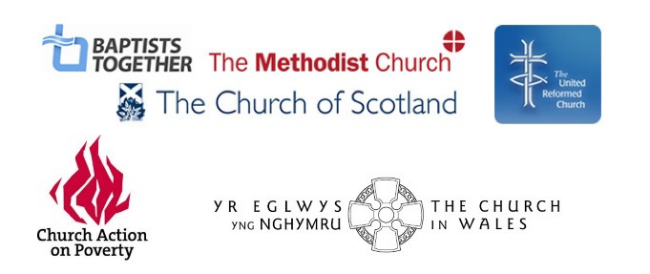DWP “stubbornly ignoring” calls for sanctions review
A coalition of national Churches and charities has criticised the Department for Work and Pensions over its refusal to undertake a full review of the benefit sanctions system

The DWP has issued its overdue response to the Work and Pensions Select Committee inquiry into benefit sanctions, but has failed to commit to a review as recommended.
The Select Committee, the Government’s own advisors, the Social Security Advisory Committee, charities and Churches have all called for a full independent review of the regime. These groups have highlighted the extreme hardship caused, the inconsistent and unjust application of sanctions and the lack of evidence that they encourage people into work.
The Baptist Union, Church in Wales, Church of Scotland, Methodist Church, United Reformed Church and charity Church Action on Poverty have called for an immediate suspension of sanctions against families with children and people with mental ill-health.
They say the DWP’s response does not go far enough and have called again for a review.
“In refusing to undertake a full review, the DWP is stubbornly ignoring the calls of parliament, expert advisers, Churches and charities. Most importantly, it is condemning people, many of whom have also spoken out eloquently against the inhumanity of the current practice, to unjust and pointless punishment,” said Paul Morrison, Public Issues Policy Adviser for the Methodist Church.
Responding to the DWP’s announcement that they will trial a ‘yellow card’ system, Mr Morrison added: “If a court is working to a bad set of laws for a bad set of reasons and making bad and unreliable decisions, it’s not the sentencing policy you look at.
‘Yellow cards’ will reduce the number of sanctions, which is welcome, but won’t address the fundamental problems that occur long before the decision to sanction has been made. That’s why we need a full independent review”
Even if a benefits claimant is able to demonstrate that they cannot afford food due to being sanctioned, most people will still not become eligible for a hardship payment or loan for a further two weeks and, once eligible, it will take a further three days before payment actually arrives.
Dr Richard Vautrey, a GP in Leeds and deputy chair of the BMA's General Practitioners Committee, said: “GPs are increasingly seeing people who are suffering serious consequences as a result of the current benefit sanctions system.
"Vulnerable people can be left with no money to pay for essentials such as food and heating and this can then have a damaging impact not only on their physical and mental health but also the health of family members, including children, who depend upon them.
"Government policy directly puts the health of patients we care for at risk. Immediate action should be taken to end these punitive actions.”
In March this year, the Churches published a report showing that nearly 100,000 children had been affected by sanctions in 2014 alone and that people with mental health problems were being sanctioned at a rate of more than 100 per day.
As a result of their campaign more than 2,000 people wrote to their MPs asking them to support a review of the system.
The report told stories like that of Martin*, aged 60, who missed an appointment with the job centre because his wife died suddenly. He was sanctioned for six weeks, leaving him with nothing to live on and in a state of confusion as his wife had previously handled most of their joint paperwork. He came to the local church for help and charity Acts435 helped him with his living expenses until he could come to terms with the new shape his life had taken.
“The Government claims that sanctions help people into work, but the evidence for this claim is practically non-existent,” added Mr Morrison. “However, there is plenty of evidence that sanctions cause hardship, suffering and hunger. Any system that seeks to ‘change people’s behaviour’ by using hunger as a weapon is immoral.”
*Not his real name.
Baptist Times, 22/10/2015